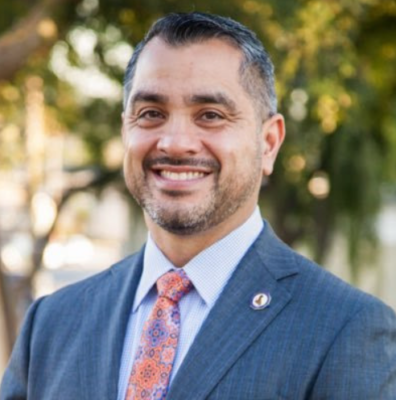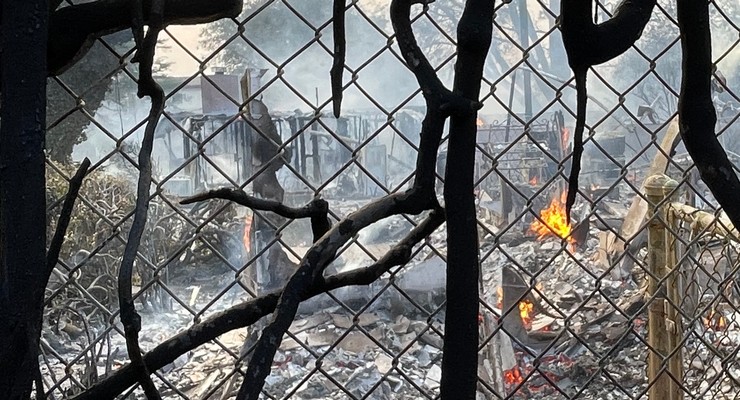 Picture your neighborhood without yards. Now picture homes built approximately four feet from one another, and with an extra three units stacked on your single-family property. Regardless of where you live. Regardless of local zoning restrictions. This could be California’s future if some in the legislature have their way.
Picture your neighborhood without yards. Now picture homes built approximately four feet from one another, and with an extra three units stacked on your single-family property. Regardless of where you live. Regardless of local zoning restrictions. This could be California’s future if some in the legislature have their way.
California’s Legislature is advancing its latest attempt to solve the state’s lack of affordable housing with Senate Bill 9 (Atkins), a measure that would fundamentally change neighborhoods across California and strip cities of their local control over zoning. If approved, SB 9 will eliminate single-family-residential zoning in the state and enable four-unit, high-density development statewide. It would trade single-family homes for seas of duplexes and displace localities from shaping the future of their communities. Because the bill would keep cities from governing their own local zoning, community members would be forced to trek up to Sacramento to advocate for their neighborhood concerns–an option only available to very few residents.
Big tech and other corporate interests have been pushing a Yes In My Backyard (YIMBY) agenda for years, funneling money into efforts to strip communities of control over their futures. Their interests are focused on creating a housing supply that they believe will reduce housing costs.
Unfortunately, the bill creates a potentially massive increase in housing units while not addressing a fundamental responsibility of all cities: basic infrastructure. Streets, parking, water supplies, power and sewer systems have been installed and maintained over decades with a presumption of the nature of the housing and development that would fit into single-family-residential zoned neighborhoods. A sweeping change to zoning would dramatically increase the demand placed on sewer systems and tax our already troubled–and now drought-stricken–water supplies. SB 9’s narrow-focused pursuit of housing-supply-at-all-costs ignores the fundamental basics that make homes functional: running water, flushing toilets and lights that turn on when needed. Issues that Sacramento doesn’t have to solve–cities do.
Cities are not the barrier to California’s housing supply. Hundreds of cities from across the state have been implementing innovative programs and stretching what few low-income housing funds they have to create affordable housing options. Indeed, cities would be further along in the game had California Redevelopment Agencies not been eliminated in 2011. Redevelopment agencies were the single largest source of low-income housing funds in California–and while redevelopment agencies were eliminated by the Legislature, the Legislature took no action to create a replacement fund for low-income housing. Now their solution is to eliminate single-family-residential zoning, stripping city governments from controlling their own jurisdictions.
California needs rational CEQA reforms, a funding source for low-income housing, an in-depth review of the impacts of Wall Street’s housing investments and a more thorough understanding of international capital flows driving demand for housing in California. Our challenge is not entirely a supply-side question–it is a demand-side pressure that we should understand before taking the drastic step of eliminating the California dream. Otherwise, we are likely implementing a policy that will benefit billionaire investors from overseas and in New York–not the Californians who choose to live, work and contribute to their communities.
Cities are ready to be pragmatic partners in the pursuit of resolving California’s affordable housing crisis, but we cannot support policies that sideline local decision-makers and our communities in this debate. Cities are the most trusted level of government–and representative democracy has proven that cities deliver for communities and are responsive to the needs of residents. We hear the people on this, we stand behind the local leaders elected by their communities and we know that throwing out local control over land-use policies is not the answer to California’s affordable housing issues. Collaboration with local leaders is.
Marcel Rodarte is the Executive Director of the California Contract Cities Association and the former Mayor of Norwalk.




















12 thoughts on “Guest Opinion | Marcel Rodarte: SB 9 is Bad For California”
This opinion piece could not be further from the truth. As a Los Angeles architect working specifically on market rate and affordable multifamily housing projects, bills like SB 9 are *critical* to helping reduce the housing crisis in California. The crisis partially originates when city after city in California down zoned (aka made most residential zoning single-family only) in the 1960s/70s. SB 9 partially reverses those racist policies by adding density to single family neighborhoods. The idea that you need a grassy yard for every home is completely unsustainable (property taxes for strictly single family neighborhoods are not enough to afford the infrastructure on your street, cities essentially reallocate taxes from urban areas to prop up your suburbs, so this opinion pieces cute worry about overburdened infrastructure is nonsensical because you can’t even afford it as is).
California needs housing supply. Period. This article’s NIMBY scare tactics are the opposite of what’s needed to increase the housing stock, decrease homelessness, and moderate living costs. Guess what having to re-do utilities means? Good paying jobs!
Guess who has got us to the position of having to vote against our leaders ? Our leaders! From the State as well as local representatives. Pasadena isn’t building affordable housing. Every development built gives the developers a bonus to build bigger, use more water and electricity. There isn’t any mention of conservation in any of their plans. Just more market rate units. Not to own but to rent. Taking away true ownership of your housing needs and not having the feeling that you are connected to your city. Having a real stake in what happens if you own your own property.
What a surprise, another NIMBY opinion supporting the historic racism of exclusionary zoning. Picture your yard exactly as it is today, but picture your city with fewer homeless and fewer people living in tents. That’s the reality if SB9 passes. Study after study have concluded bills like SB9 would not cause the demise of our cherished single family neighborhoods. What it would do is help our housing affordability crisis – something local governments have been unwilling to do. Housing is the American Dream, it’s time we start including all Americans in that dream, not just the well-heeled.
We need to fight back against Scott Wiener and his bosses in the development world. California is massively overpopulated and building more housing will only exacerbate congestion, traffic, crowding and water-depletion. If Governor Newsom signs with SB 9 or SB 10 then he deserves to be recalled!
Who gave this guy the mic. Dude doesn’t want “poor” people in his neighborhood with their “affordable housing” and “duplexes.” Fear mongering over setbacks because his environmental disaster of a front lawn is under threat. How can he keep up with the Joneses if the Joneses live in a duplex?
The suburban experiment failed. It’s time to increase density. The future is now old man.
Completely agree with the article. People in Sacramento shouldn’t be pushing their agenda on cities. Let local communities make the decision what is best for their community.
Increasing density without critical infrastructure just doesn’t work. The state can’t keep adding more people when we can’t even accommodate what we currently have. Think rolling blackouts, water shortages , traffic etc. deal with that first.
Now News, It’s nice to see that the comment section of your reporting is bringing more people to the conversation with their points of view. Some seem to be confused for what SB-9 and 10 will really do to our communities. When has any of our elected officials come forth and explained what the outcome will look like in say 10 years? By then we’ll have even more problems to solve with our growing pains. If we need affordable housing then why aren’t we building it now? If less than 300 units have been built in the last 10 years, when do we plan to start? Our Leadership in Sacramento doesn’t communicate with people, they only keep in contact with those who will keep them in office with campaign contributions and pass laws that normal people never hear about until they have been passed. So Pasadena Public what do you want? Speak up!
When Portantino votes against you, you *know* you’ve on the NIMBY crazy train.
It is puzzling to see people frothing about housing affordability when these bills do exactly nothing to address that. The text of both bills is explicit that developments are expected to sell at – and this is a quote: “market rate”. If you’re paying attention, market rate is exactly what everyone thinks is a problem.
I completely agree with this article. SB 9 is a gateway for multi family developers to over build and profit while doing nothing to ensure sustainable, environmentally friendly, or affordable housing. I feel for those who have worked towards ownership as this will just ruin property value and appreciation over time. Worst of all, this is not going to touch the housing problem, and to think it will have any effect on homelessness is absurd and illogical. How will erecting thousands of condos and apartments, at a cost of 800k+, help equalize socioeconomic and racial disparities? It will just worsen them, because those people will be bought my developers and pushed out of the city. A better solution is a robust subsidized housing program that works to allow those struggling to purchase to be able to. Restoration and investment into less desirable neighborhoods would also improve the situation. There are many underutilized and vacant units that already exist, provide a program for the current owners to restore and make their units more marketable. This will do two things: provide housing and provide income in areas that need it most.
When you tell us this article is an example of “historic racism of exclusionary zoning”, you simply trying to manipulate public opinion. It is the same as to say, “Gov. Newsom abuses power, he, the same way like Hitler in 1930-s, is using emergency situation laws to gain political tyranny!” We should be objective in consideration of such serious matters. And the current condition of the infrastructure can not be removed from such consideration. It is not about racisms, it is about real problems the people of California is facing. I agree with those who demand long lasting solution of the water supply problem. We can no longer depend on the changing pattern of the rain and snow fall. I agree with those who call for more money allocation in the special funds for rebuilding sewer systems, improving the streets, bridges, widening freeways. The cry about affordable housing is much more noise than a real project. Here is my suggestion. Use the money allocated by the Federal Government and dedicated to local agencies for construction of cooperatives properties governed by the members of co-op. I’m sure the cost of construction will become much lower when the members really want the homes to be built, and not to spend as much money as possible. SB-9 does not provide a solution of housing crisis. The modern reality of cities is this – we have to build vertically instead of spreading horizontally.